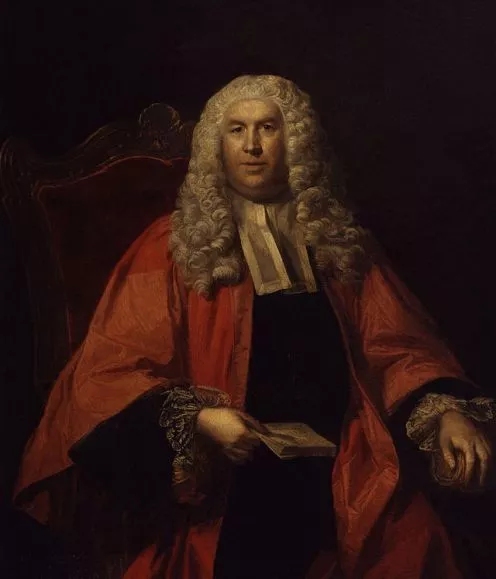
William Blackstone: Commentaries on the Laws of England
William Blackstone: Commentaries on the Laws of England was a hugely influential treatise on English law that methodically rendered that massive body of statutes and legal decisions called the “common law” into a coherent system of legal principles intelligible to the layperson.
The Commentaries was the paramount authority on the common law in the eyes of the American Founders. Its articulation of the logic of the common law was one of the reasons they chose to establish the American legal system on its basis. Blackstone is still cited today by lawyers and judges in their efforts to articulate the meaning of American laws and the Constitution.
The fourth volume of the Commentaries includes a section dealing with libel and seditious libel, which informed to a great extent the Founders’ understanding of the freedom of the press clause of the First Amendment. There Blackstone insists that “the liberty of the press is indeed essential to the nature of a free state,” but concludes that this liberty consists primarily “in laying no previous restraints upon publication.” This legal principle, commonly called “prior restraint,” means simply that the government cannot create regulations, such as requiring a license to publish, that would punish or inhibit publishers before they have printed anything. Blackstone recognized little restriction, however, on the power of the government to regulate printing after the fact.
As Blackstone interpreted it, the Founders rejected two features of the common law understanding of libel. First, Blackstone held that, aside from civil cases where an individual is claiming damages incurred against himself or herself, since “the tendency which all libels have to create animosities and to disturb the public peace, is the sole consideration of the law,” the truth of the libel is irrelevant to its defense. Second, the Commentaries made no provision for a jury trial in the case of seditious libel, meaning that the government could decide cases in which it was the object of the alleged libel. In drafting the first federal seditious libel law, the Sedition Act of 1798, the Federalists departed from these two principles by explicitly providing that truth could be offered as a defense by anyone charged under the act and that a jury would try such cases.
